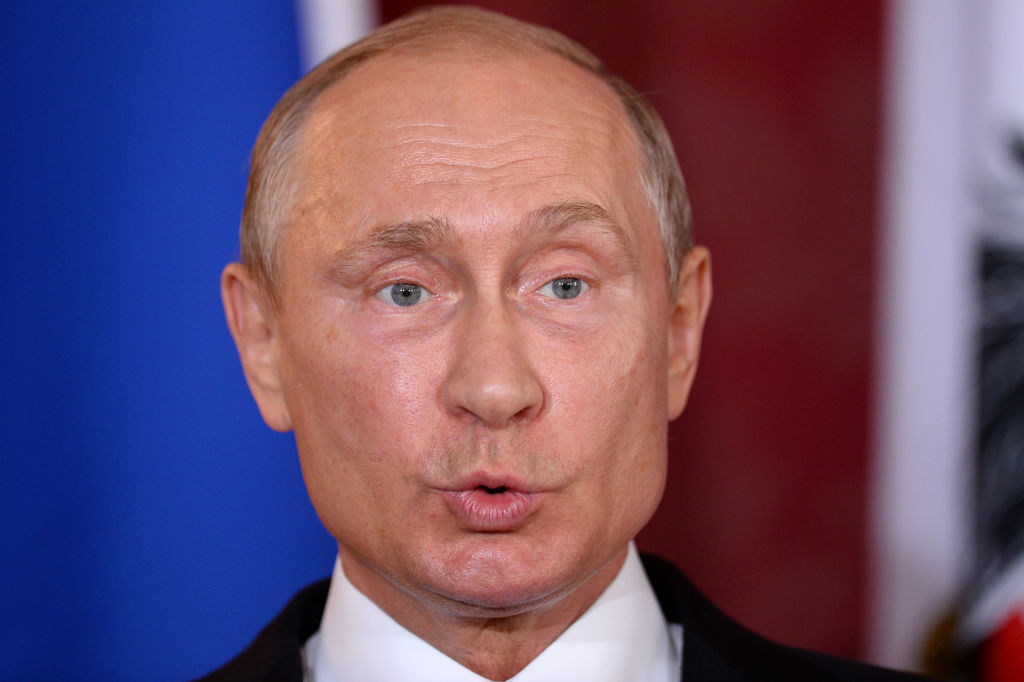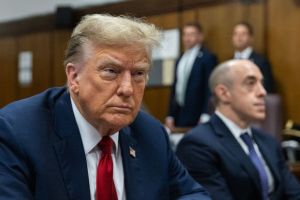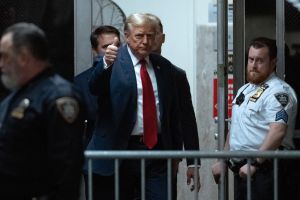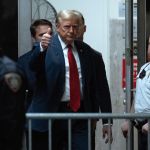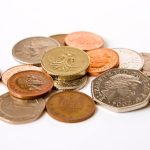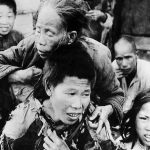Vladimir Putin — about to embark on a state visit to Austria, his first foreign trip since being re-elected president of Russia — sits for an interview with Austrian television…and is repeatedly questioned about a man popularly known as ‘Putin’s chef’. This is because the ‘chef’, Yevgeny Prigozhin, is not really a chef, but an oligarch said to be trusted with some of the Russian state’s most important tasks, including — allegedly — interfering in the US presidential election, though Putin denied this in his interview.
Prigozhin earned his mocking nickname after opening a luxury restaurant in St Petersburg that became one of Putin’s favourites. A photograph shows the billionaire obsequiously serving the Russian leader, standing behind his chair like the world’s most highly paid waiter. This image was a symbol of Putin’s deep trust in Prigozhin: For generations Russia’s leaders have had a (justified) fear of being poisoned.
Who is Evgeny Prigozhin, the supposed mastermind behind Russia’s “troll factory”? There’s a lot about his past and present he doesn’t want you to know. Read what Meduza dug up in June 2016.https://t.co/Zz11RY684x pic.twitter.com/HtePbV1FyJ
— Meduza in English (@meduza_en) February 16, 2018
His life story is emblematic of how modern Russia works. In Soviet times, according to the Russian media, he was given a 12-year jail sentence for robbery and pimping underage girls. He emerged from prison as the Soviet Union collapsed and opened a hot-dog stand in St Petersburg. This grew into a conglomerate supply catering services to the army, schools, and the Kremlin. Putin — it is claimed — was Prigozhin’s krysha, or ‘roof,’ providing state contracts and official protection in return for a share of the spoils.
Now Prigozhin is one of 13 Russians charged by the US special counsel, Robert Mueller, with interfering in the American presidential election. He is accused of having funded a company, innocuously titled the Internet Research Agency, that flooded Facebook and Twitter with fake news during the 2016 campaign. ‘Defendant organization had a strategic goal to sow discord in the US political system,’ reads the indictment, ‘supporting Donald J. Trump and disparaging Hillary Clinton.’
Wasn’t Prigozhin’s name on the indictment evidence of Putin’s own involvement in this, the Austrian TV journalist asked?
“He is a restaurant keeper in St Petersburg,” Putin replied. “But now let me ask you: do you really think that a person who is in the restaurant business, even if this person has some hacking opportunities and owns a private firm engaged in this activity — I do not even know what he does — could use it to sway elections in the United States or a European country?”
The Austrian TV journalist, Armin Wolf, didn’t give up. “But he spends millions of dollars on the [internet] troll factory. Why does a restaurant keeper need this?”
“You can ask him,” Putin said. “Russia as a state has nothing to do with this… It is Mr Prigozhin’s private affair. This is my answer. Are you satisfied with it?”
That testy exchange will not be allowed to throw a shadow over the visit. Austria and Russia have unusually warm relations. The government in Vienna did not expel any Russian diplomats over the Skripal attack and it opposed EU sanctions on Russia. This may be because the junior partner in the ruling coalition, the far-right Free Party of Austria, or FPÖ, has a partnership agreement with the United Russia party, founded by Vladimir Putin.
The agreement was signed, in Moscow, by the FPÖ’s leader, Heinz-Christian Strache, a former dental technician now the Austrian vice chancellor. He announced that the pact would ‘strengthen the friendship and education of young generations, in the spirit of patriotism and of finding joy in work.’ The FPÖ was then forced to deny that it had received funding from the Kremlin.
Still, claims persist that Moscow has funnelled cash to a number of far right parties across the Europe. The Soviet Union had the strategic aim of splitting Western alliances such as Nato and the EU. Several Western intelligence agencies believe that President Putin wants to do the same. Russia would be able to negotiate individually with a series of weak states, cutting off the gas, or threatening to use its military might, to dominate the continent.
President Putin denies it. “We want to see a united and prosperous European Union,” he said in his interview. But at least one important EU member state, Austria, is now governed by one of his close allies. Did the Internet Research Agency — and Putin’s chef — have anything to do with that?
